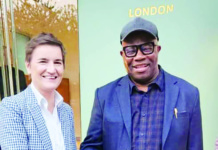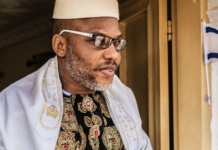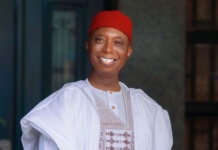By Peter Olorunnisomo – The days of military coup d’etats are gone in Africa and democracy is gaining more acceptance among the political class of the continent. It would however appear that the virtues of election credibility and integrity are usually challenged whenever an election exercise takes place.
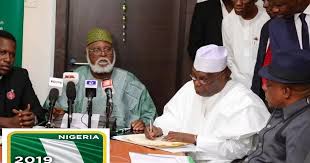
It is paradoxical that the people’s mandate being contested for, which should count so much by every citizen, are lost because no sooner are election results released than sooth-said there would be violence and death. Any prophet prophet would remain poor trying to justify that prophesy divinely.
The notion of opposition is one that makes almost every politician believe he or she is swimming is a cesspool of antagonism, generating a high degree of flaying emotions, and whipping up unnecessary sentiments for nepotism and sectoral differences. These almost usually water down integrity and loyalty to the state.
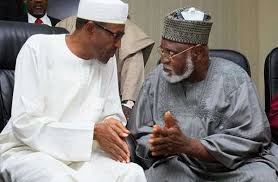
Post-election violence has accounted for thousands of needless deaths, and at times, these start even before elections as undercurrents of hatred are fuelled under the guise of subterfuge.
This has been the case in Zimbabwe and Cameroon just to mention a couple. It is helpful to understand that the current trend of having septuagenarians and octogenarians as political ‘wise’ champions at the helm of state affairs and leadership reflect differently to the goals of democracy as credibility crisis usually erupt and agitation incensed.
Nonetheless, the Nigerian experience may just be paving way for an antidote to this occurrence. Just like the disabling pre-nuptial agreements, contestants are asked to sign peace agreements that would not endanger the process of transition and protect the lives of the citizens.
With elections just about four months away, Nigeria’s main opposition candidate, Atiku Abubakar signed an election peace pact on Wednesday, saying a ‘communication lapse’ had prevented him from participating in the initial process with other candidates.
Atiku, Donald Duke and Oby Ezekwesili, were some of the opposition candidates, who were notably absent at Tuesday’s ceremony in Abuja, at which President Muhammadu Buhari and dozens of other candidates vowed to ensure non-violence.
Voters in Africa’s most populous nation go to the polls to elect a new president and parliament on February 16 next year. Gubernatorial and state assembly elections follow two weeks later.
The Peoples’ Democratic Party (PDP) said Abubakar was not at the event “due to (a) communication lapse between the National Peace Committee (NPC) and our party’s national secretariat”.
But it added that both the party and Abubakar were “fully committed to a peaceful electoral process and elections in 2019”.
Earlier today (Wednesday), I appended my signature to the Peace Accord. I also urged the President to sign the Electoral Act Amendment Bill into law.
Ezekwesili, who was education minister under Olusegun Obasanjo and is an ex-World Bank vice-president, also signed the peace accord on Wednesday.
Abubakar, a former vice-president under Olusegun Obasanjo from 1999 to 2007, was known as a “global ambassador of peace”, it added in a statement issued on Tuesday night.
His spokesman earlier told AFP Abubakar was “not invited” to the event, which was organised by the National Peace Committee. Several other candidates were also absent.
But the committee’s chairman, former military ruler Abdulsalami Abubakar, denied any snub and maintained: “Everybody was invited.”
“We, the candidates pledge to uphold the highest standard of conduct and encourage our teeming supporters to do the same,” Buhari said, while attending the event in the capital, Abuja.
The 75-year-old former military ruler was joined by representatives of dozens of other parties to commit to what he said should be “peaceful and credible” elections.
The text of the peace accord is the same as that signed before the 2015 polls, which saw Buhari win. Candidates are required to publicly speak against religious, ethnic and electoral violence.
Atiku was not the only absent candidate. Donald Duke, a former governor of Cross River state, and Oby Ezekwesili, who was education minister under Olusegun Obasanjo and is an ex-World Bank vice-president, also skipped the event.
When asked about Abubakar’s absence, his media advisor had said he was “not invited”.
“Atiku didn’t get any invitation to the event,” he told AFP.
But Abdulsalami Abubakar, the current chairman of the National Peace Committee, denied any snub and asked “What reason do we have not to invite somebody?” he said.
“This peace accord was for all political parties to sign to be of goodwill and good behaviour during the elections.”
At the last election, Goodluck Jonathan, Buhari and other presidential candidates also signed a pledge of non-violence in the presence of former UN Secretary-General Kofi Annan.
Security around polling is a recurrent concern in Nigeria, which has a history of violence stoked by identity politics, ethnicity and religion.
In 2011, some 1,000 people were killed after clashes between supporters of Buhari after his defeat to Goodluck Jonathan.
Kindly follow us on twitter:@AfricanVoice2


